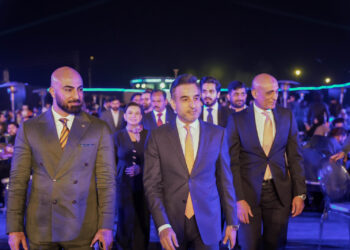Introduction: A Diplomatic Victory for Pakistan Amid Regional Rivalry
In a significant development highlighting Pakistan’s diplomatic prowess and India’s diplomatic failure, the International Finance Corporation (IFC) — a member of the World Bank Group — has approved a $700 million concessional loan for Pakistan’s Reko Diq copper-gold mining project. This financial endorsement is being hailed as a major achievement for Islamabad, further reinforced by the projected $2.5 billion in private sector investments that the project is now expected to attract.
Held in Washington, the World Bank board meeting culminated in this strategic approval, which many experts interpret as a blow to India’s diplomatic efforts to isolate Pakistan on the global stage, especially in matters involving international finance and development partnerships.
Background: Understanding the Reko Diq Project
The Reko Diq project is one of the largest undeveloped copper and gold deposits in the world, located in the Chagai district of Balochistan, Pakistan’s resource-rich but economically underdeveloped province. The project has long been considered a cornerstone for economic development and foreign investment in Pakistan’s mineral sector.
Discovered in the 1990s, Reko Diq is estimated to hold 5.9 billion tonnes of ore with 0.41% copper and 0.22 grams of gold per tonne, making it a project of massive economic and strategic value. The project had previously faced legal and administrative hurdles, including international arbitration and local litigation, but has recently been revived under a new agreement with Barrick Gold Corporation, a Canadian mining company that now leads the project along with Pakistani stakeholders.
India’s Opposition and Diplomatic Misfire
India has historically opposed major international investments in Pakistani-administered territories, including Balochistan, citing security concerns and regional instability. According to diplomatic sources, India had made efforts behind the scenes to dissuade international lenders from financing the Reko Diq project, raising concerns over regional tensions, governance, and environmental sustainability.
However, these efforts appear to have failed, as the World Bank and its private sector arm, IFC, chose to back the project after months of evaluations, diplomatic consultations, and financial due diligence. The decision is widely being viewed as a diplomatic blow to India, which has struggled to prevent international endorsements of Pakistan’s infrastructure and development plans in sensitive regions.
Pakistan’s Strategic Diplomacy: Key Role Played by Dr. Tauqeer Hussain Shah
Much of the credit for this diplomatic success has been attributed to Dr. Tauqeer Hussain Shah, Advisor to the Prime Minister of Pakistan. Dr. Shah reportedly played a pivotal role in lobbying the World Bank and IFC, leading high-level meetings and presenting the strategic, economic, and developmental importance of Reko Diq.
Dr. Shah worked closely with Pakistani diplomats in Washington, project stakeholders, and international legal teams to ensure transparency, regulatory compliance, and investor confidence in the Reko Diq framework. His efforts were particularly focused on countering narratives that painted Pakistan as a risky investment environment.
Speaking on the development, a senior official in Islamabad noted:
“Dr. Tauqeer Shah’s diplomacy was critical. His engagement with World Bank officials created the conditions necessary for approval. This is a win not just for the government but for the future of economic development in Balochistan.”
IFC and World Bank: Why the Loan Matters
The $700 million concessional loan approved by the IFC/World Bank is a milestone for several reasons:
- Concessional terms mean Pakistan will receive the funds at below-market interest rates, easing the financial burden on the state.
- It enhances global investor confidence, signaling that Pakistan’s regulatory framework and governance in the mining sector meet international standards.
- It paves the way for $2.5 billion in private investments, which will further spur economic growth, job creation, and infrastructure development in the resource-rich but underserved region of Balochistan.
- The loan also reinforces Pakistan’s strategic relationship with international financial institutions, crucial at a time when the country is battling economic challenges, including inflation, debt servicing, and currency devaluation.
Economic Significance of the Reko Diq Project
The successful development of Reko Diq could be a game-changer for Pakistan’s economy, with the following benefits:
- Revenue Generation: The project is expected to generate billions in revenue over its lifespan through royalties, taxes, and export earnings.
- Job Creation: Thousands of direct and indirect jobs are expected to be created in Balochistan, reducing unemployment and fostering economic inclusion in the province.
- Infrastructure Development: Ancillary development like roads, energy supply, and water infrastructure will benefit local communities and increase regional connectivity.
- Foreign Exchange Earnings: Copper and gold exports from Reko Diq will provide a significant boost to Pakistan’s foreign exchange reserves, reducing reliance on imports and external borrowing.
Balochistan’s Role in Pakistan’s Economic Future
The province of Balochistan has long been marginalized in Pakistan’s national development narrative. However, projects like Reko Diq, along with the China-Pakistan Economic Corridor (CPEC), are beginning to shift the paradigm. Successful execution of Reko Diq will not only benefit the national economy but also help integrate Balochistan into Pakistan’s mainstream development framework.
It also presents an opportunity for corporate social responsibility (CSR) initiatives, including the development of schools, hospitals, and vocational training centers in the region.
Global Investment Confidence and Geopolitical Implications
By securing a major investment from the IFC, Pakistan has sent a powerful message to the international investment community. The approval also reflects improved governance, transparency, and legal reforms that have made Pakistan a more attractive destination for global capital, particularly in the mining and energy sectors.
Geopolitically, this development undermines India’s narrative of portraying Pakistan as an unstable, high-risk country for international projects. It also suggests that major financial institutions remain open to engagement with Pakistan, despite pressure from regional adversaries.
Conclusion: A Diplomatic Win with Strategic and Economic Value
The IFC’s approval of a $700 million concessional loan for the Reko Diq project marks a major diplomatic and economic triumph for Pakistan, exposing India’s failure to block the initiative. With projected private sector investment of $2.5 billion, the project promises to transform Pakistan’s mining landscape, generate employment, and boost national revenues.
The role played by Dr. Tauqeer Hussain Shah exemplifies how effective diplomacy and strategic lobbying can yield tangible economic benefits. As Pakistan continues to navigate complex regional dynamics and economic hurdles, this success could pave the way for future cooperation with global financial institutions and a more secure economic future for the country.

























